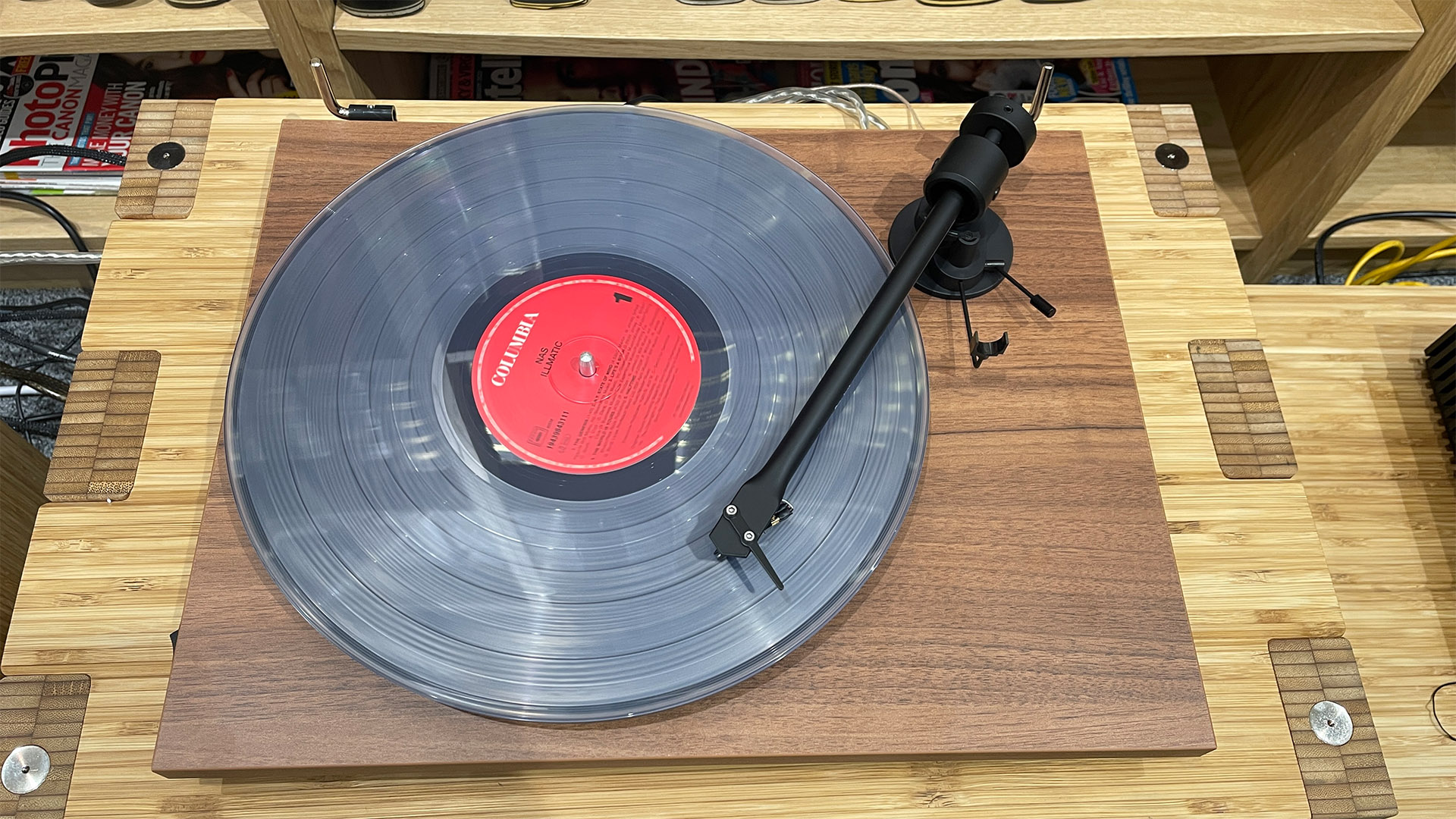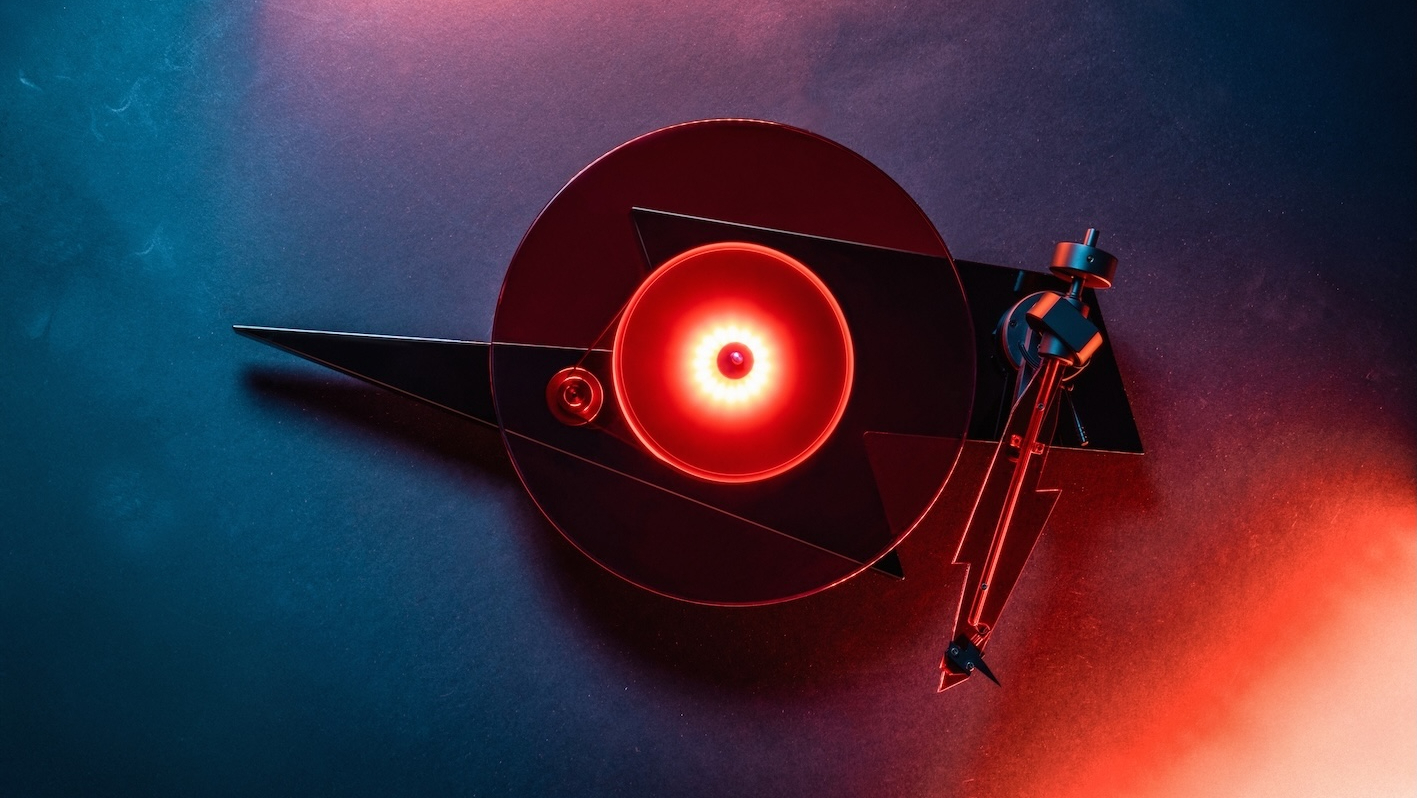What Hi-Fi? Verdict
Pro-Ject’s straightforward T1 Evo BT sets a new standard for Bluetooth turntables at this price – for its simplicity, flexibility and performance, it’s a winner of a spinner
Pros
- +
Smooth, fluid sound
- +
Reveals solid levels of detail
- +
Easy to set up and use
Cons
- -
Price-comparable purist decks offer more sonic punch and drive
- -
Limited upgrade potential when it comes to cartridges
Why you can trust What Hi-Fi?
There are some combinations that work beautifully, even if you wouldn’t necessarily consider putting them together in the first place. Beans on toast is an odd combination when you think about it, as is surf and turf, while carrots in a cake has no right to be as good as it is. Mixing poached eggs with smoked salmon is essentially combining dairy and fish, but no one complains when a boujee brunch spot has Eggs Royale on the menu, do they?
It’s the same with Bluetooth turntables. Teaming up Bluetooth and vinyl may seem strange at first, but the idea of having analogue record playback beamed wirelessly to a host of modern compatible sources unquestionably has its appeal, especially for users who are just setting out on the vinyl path and need a simple system to get them started.
The Pro-Ject T1 Evo BT is designed to be just that – an accessible option for getting your vinyl spinning with wires or without as part of Pro-Ject’s Evo T1 line of wallet-friendly decks.
The big question, then, is this: is the T1 Evo BT akin to the holy union of ham and cheese, or is this particular recipe more akin to putting pickled onions in your ice cream sundae?
Build & design
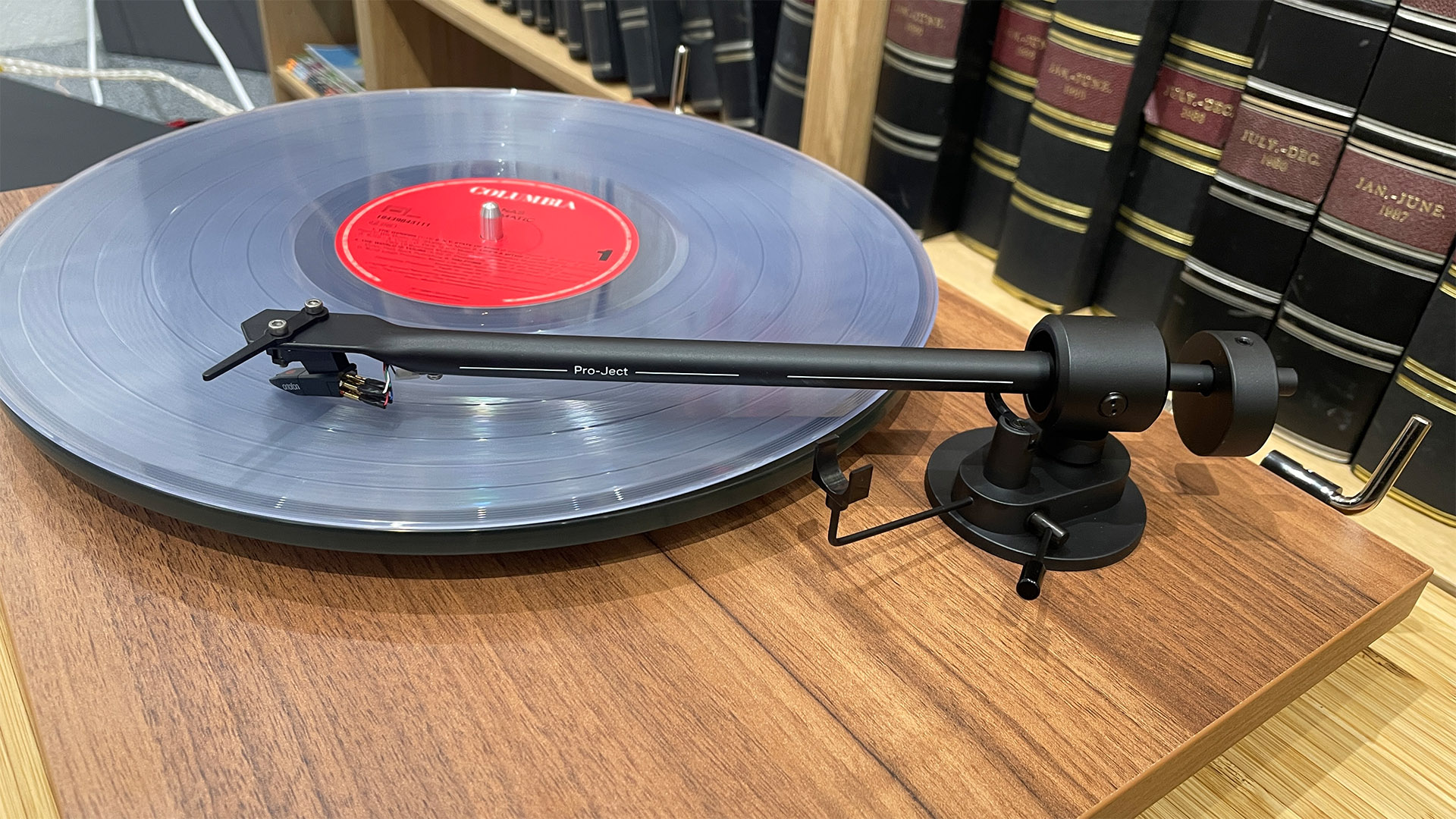
If you’re familiar with Pro-Ject’s healthy roster of budget-friendly turntables, you’ll know that it’s a brand that often goes for simple, functional designs when value for money is a key priority. The T1 Evo BT continues that fuss-free philosophy, showing itself to be a well-made and easy-to-operate turntable that should appeal to vinyl novices.
Our particular test subject looks smart in its walnut finish (black and white finishes are also available), and handling the aluminium tonearm or running a hand across the smooth, unblemished surface of the plinth indicates a product well made.
The deck is a little subdued next to the more eye-catching and similarly-priced Audio-Technica AT-LPW50BTRW – a rival Bluetooth turntable whose robust build and higher quality of fit and finish impresses us more at this price level.
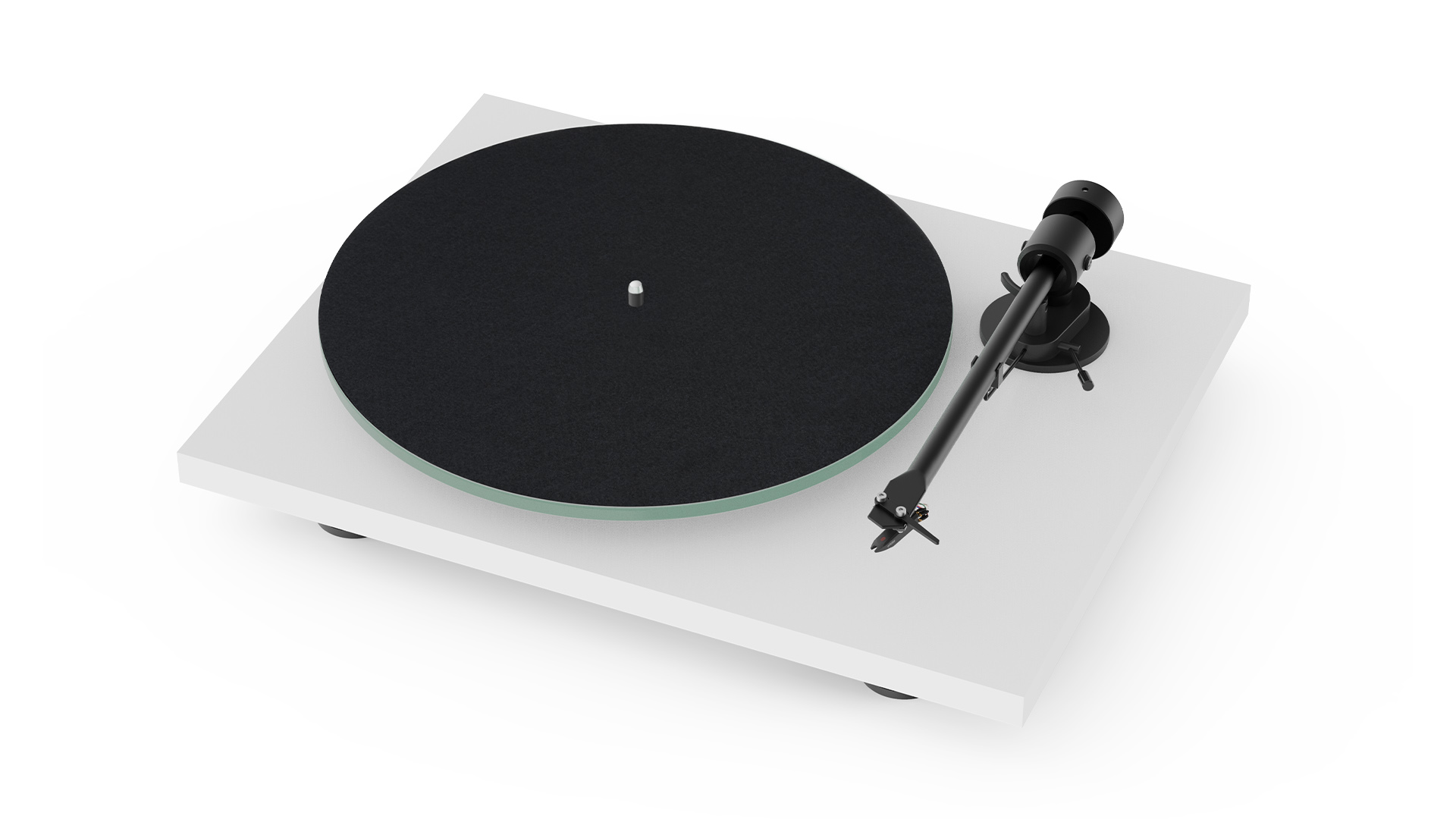
Type Belt drive
Operation Manual
Speeds 33⅓, 45
Speed change Electronic
Cartridge Ortofon OM10 moving magnet
Phono stage? Yes
Bluetooth? Yes
USB? No
Dimensions (hwd) 10 x 41.5 x 33.5cm
Weight 3.8kg
Finishes x 3 (gloss black, satin white, walnut)
However, this is a turntable that is designed to be simple to use, and that’s always a good thing in our books. While it’s not quite a plug-and-play affair, a PhD in engineering isn’t required to get it up and running in a very short time. The platter, mat, belt and optional dust cover all need to be fitted, but those are simple tasks.
To keep things simple, there is no bias adjustment available with the Pro-Ject’s tonearm, which has been designed for the cartridge fitted. While this means that it won’t be optimised for other cartridges if you’re looking to upgrade, we imagine that most users will likely stick with the Ortofon OM 10 moving magnet model that comes in the box.
The tracking weight is supposedly set right out of the box, but measuring the factory setting revealed it to be 0.2g out of whack and requiring manual adjustment – it’s not a massive amount, but it will have a slight impact on the turntable’s performance. Either way, if you get yourself a T1 Evo BT, it might be worth performing the same checks to ensure your tonearm is set at the precise force recommended for the OM 10 cartridge (1.5g).
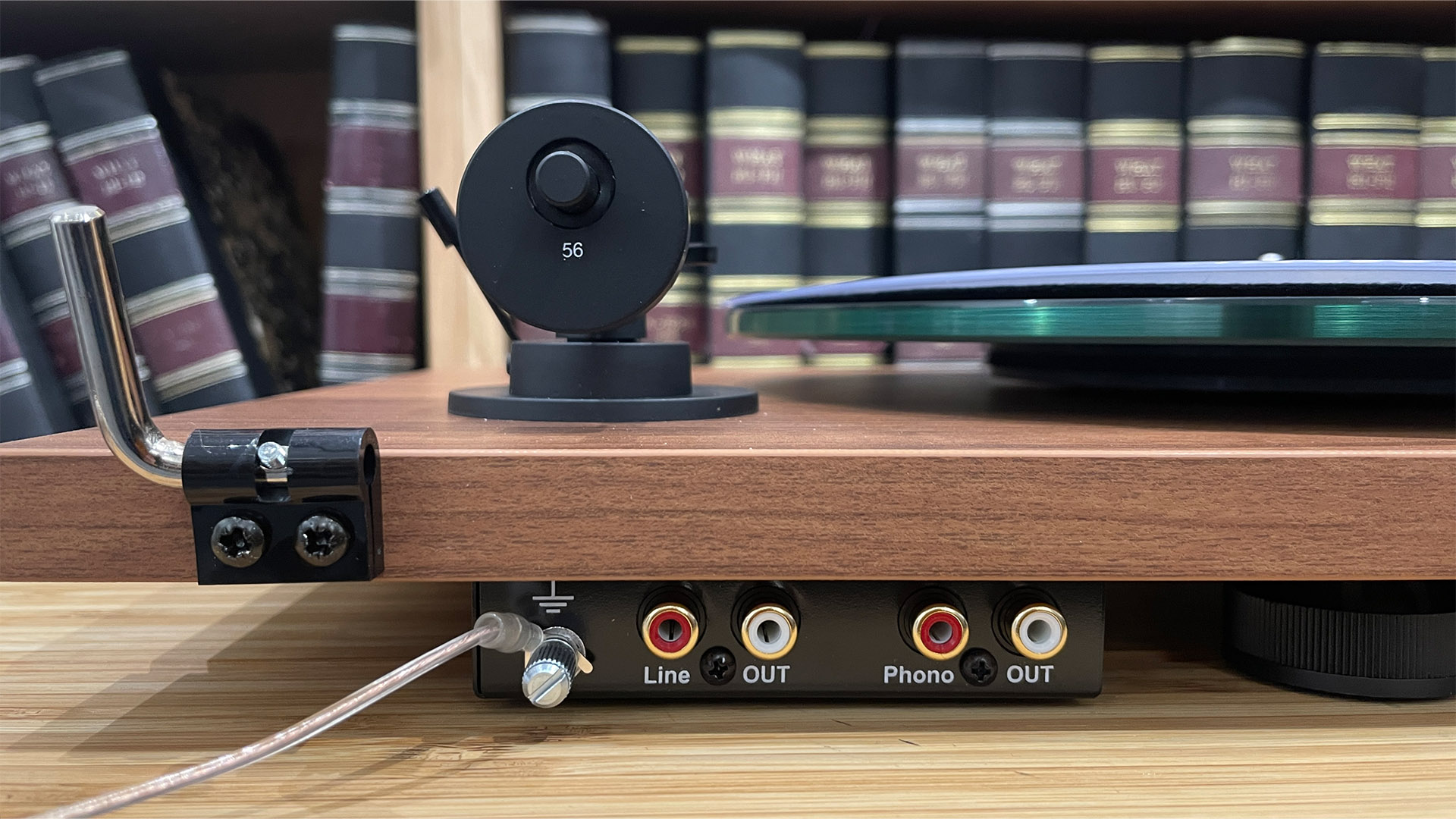
On the left-hand side of the Pro-Ject deck, you’ll discover the power and speed adjustment toggle for setting the turntable to 33 1/3 or 45 rpm, with the Pro-Ject offering a helpful electronic speed changer rather than requiring any manual adjustment.
Around the back, meanwhile, you’ll find two sets of output terminals – the ‘line out’ is for when you want to use the T1 Evo BT’s built-in phono stage, while the ‘phono out’ is for connecting to an external amplifier or standalone phono preamp.
Features
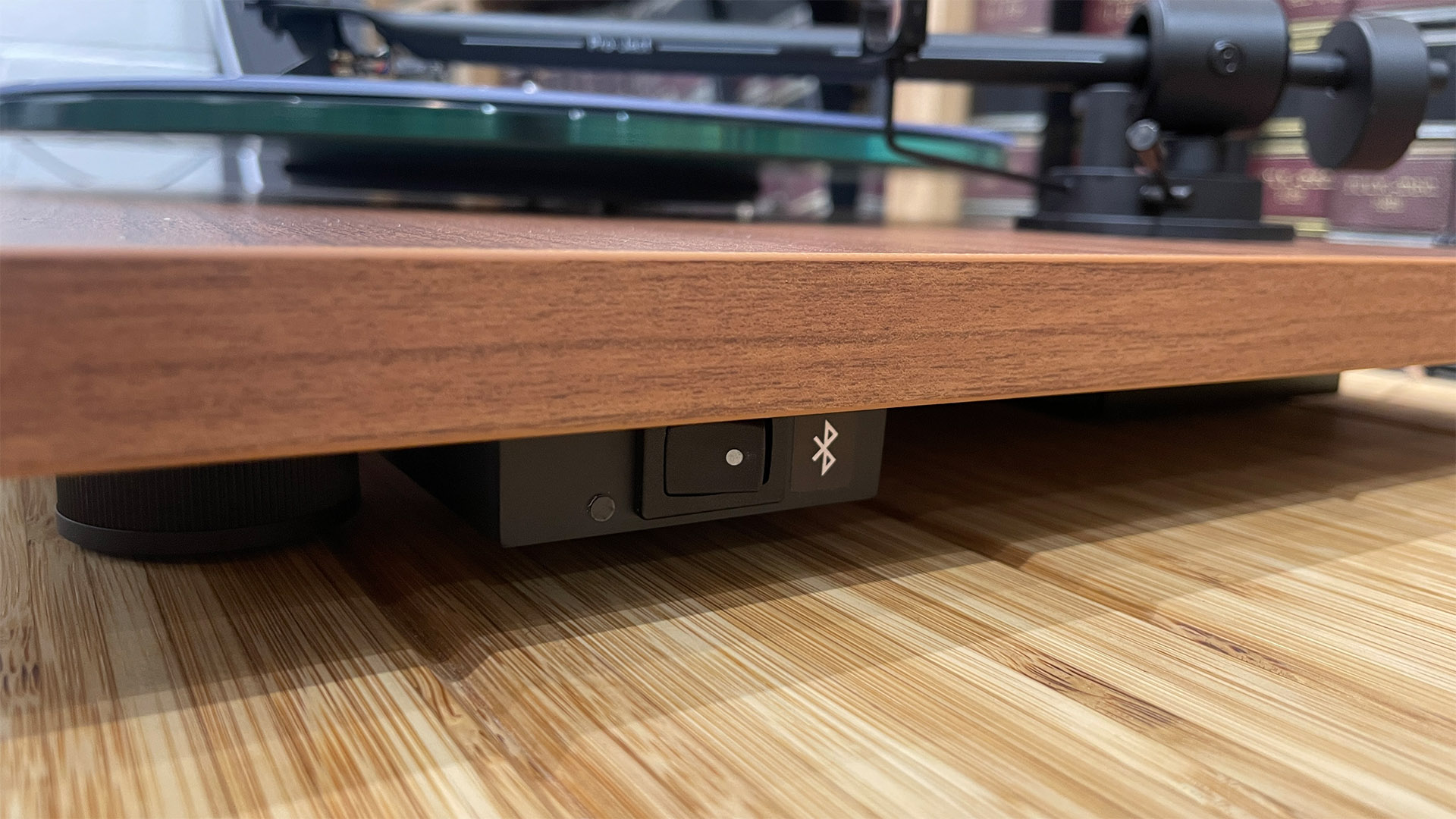
Yes, the ‘BT’ at the end of the Pro-Ject’s name does indeed stand for Bluetooth. Thanks to a recessed switch on the plinth’s right-hand side, you can beam your vinyl playback to any compatible device – Bluetooth speakers, wireless headphones, many all-in-one systems – without those tanglesome wires.
Ensuring that all other Bluetooth devices are turned off, we flip the Pro-Ject’s Bluetooth toggle switch and beam the Evo BT first to the Naim Mu-so Qb, then a couple of JBL speakers, and finally a Ruark R1S smart radio, noting how the sound remains convincing and stable no matter which speaker we use.
Do note that there’s no way of switching between devices on the fly, so you’ll have to break and then re-establish the Bluetooth connection to each device every time you want to use it wirelessly, just as we did when switching from the Naim speaker to Sony XM5 Bluetooth headphones, for instance.
Still, we experience an easy pairing process followed by a solid connection, and we can see the appeal of a set-up which uses the Pro-Ject spinner as a source and, say, a pair of Ruark MR1 Mk2 speakers to create a neat vinyl system with fewer wires than most traditional set-ups.
You can also switch off the Bluetooth element entirely if you don’t want to use it.
The T1 Evo BT comes with its own built-in phono stage, allowing for a more flexible and neater system for users – it means you can connect the turntable to active speakers and negate the need for more external boxes. You can, of course, bypass Pro-Ject’s fitted phono stage to use either a separate phono stage for an upgrade path or one built into a compatible stereo amplifier.
Sound
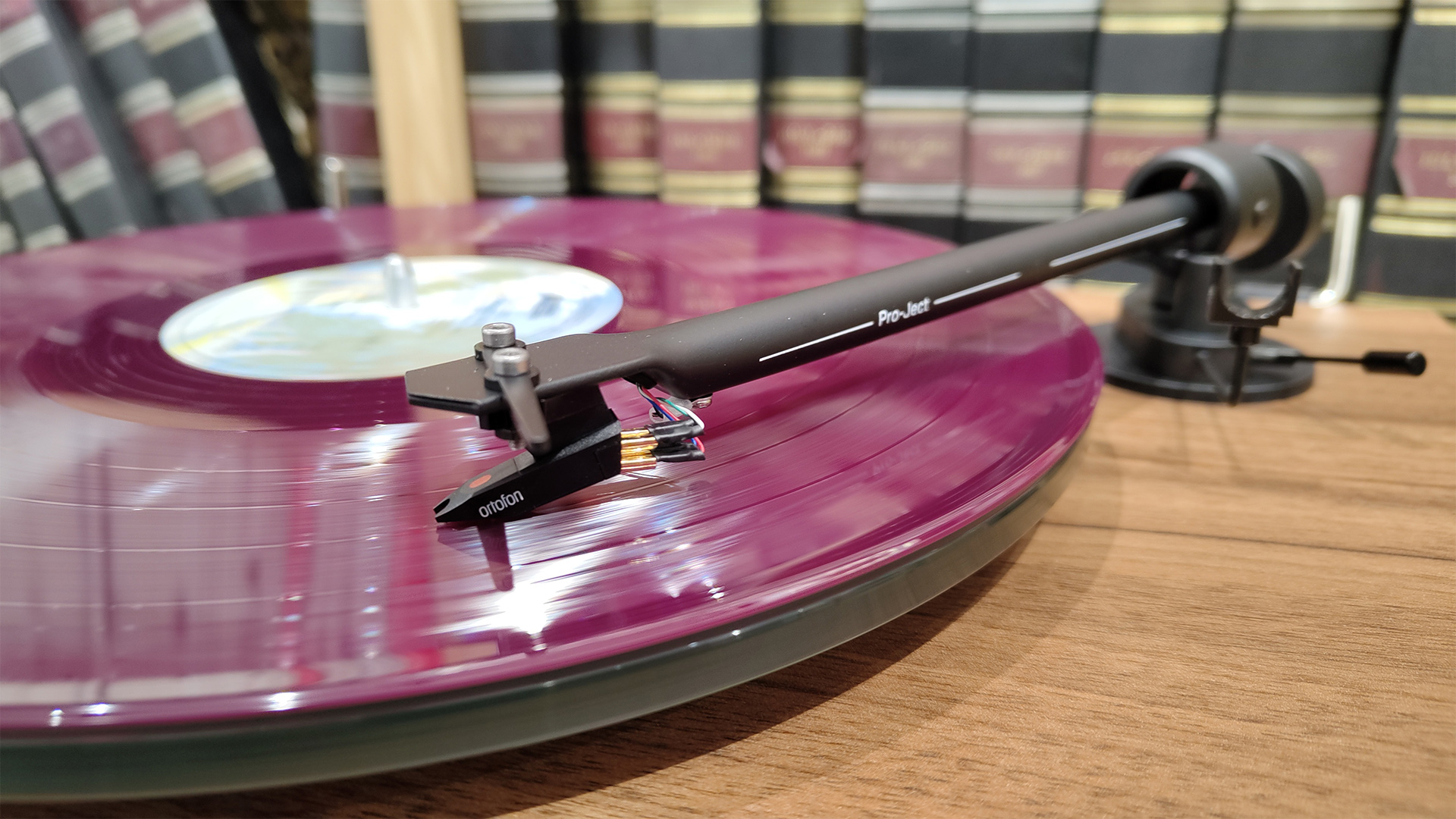
We start our listening with the Pro-Ject’s line-level output connected to our Naim Nait XS 3 reference amplifier in order to assess the capabilities of the deck’s built-in phono stage. The speakers used here are our reference Epos ES7N.
What hits us immediately as we spin our first record is the feeling of weight and smoothness the T1 Evo BT exudes. It’s a refined and easy-to-enjoy spinner that demands little from the listener, excelling when we pull out a pressing of Nas’ Illmatic and bask in the groove-laden warmth of tunes such as N.Y. State of Mind and The World Is Yours. Soon enough, our heads are bopping along to the track’s effortless flow as accompanying horns and Nas’ lyrical outpouring combine and the Evo BT provides a relaxed, free-flowing experience.
Smooth and undemanding it may be, but don’t fret that this is a deck incapable of delving into the all-important particulars. Beth Gibbons’ voice across the whole of Portishead’s Dummy has a natural, full-bodied authenticity, while instrumental timbres come through with sufficient substance and fullness to keep us invested in whichever track we select.
Anchoring those elements is enough lower-end power to keep songs from sounding anaemic or thin, with the low, resonant hums on Portishead’s Roads dropping to sufficient depths as they contrast nicely with soaring strings and bluesy guitar twangs.
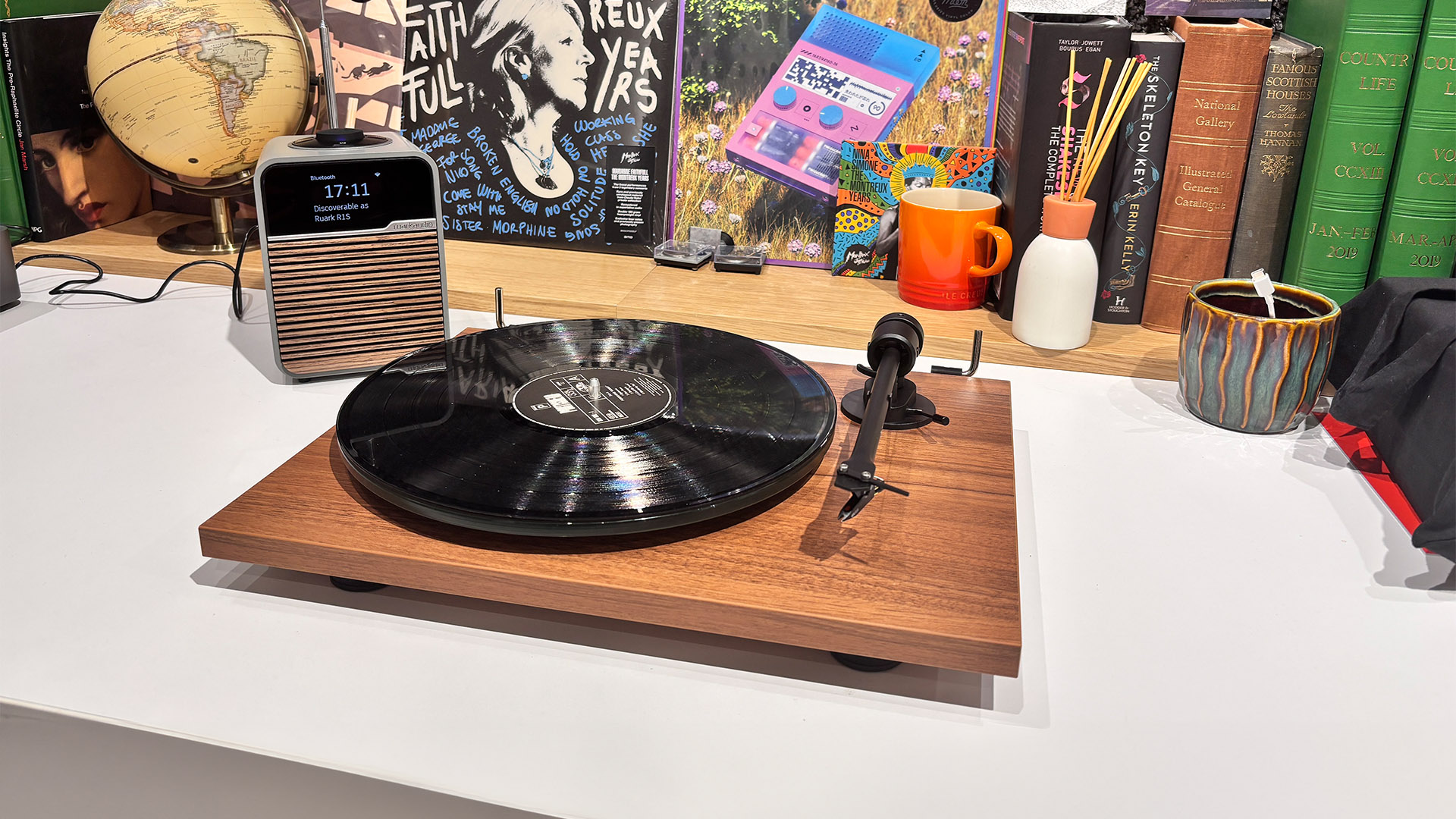
Much as we admire the Evo BT’s warm, unfussy presentation, the turntable’s slightly mellow personality comes at the expense of achieving class-leading levels of rhythmic drive. Fleetwood Mac’s Rumours is stuffed full of taut, snappy pop-rock tunes that don’t quite have the sparky feeling of propulsion a more purist alternative, such as the Rega Planar 2 or Planar 1 Plus, can provide. The presentation can also come across as a little too laid-back – Michael Jackson’s Bad, for instance, would be better served from a record player willing to give it a wider canvas alongside increased helpings of snap and energy.
Such drawbacks, however, are somewhat rectified by switching to the Naim’s built-in phono stage. Trickier rhythms and arrangements on Portishead’s Dummy are teased out far more appreciably now that we’re not relying on the Pro-Ject’s built-in phono output to shoulder the burden, with the T1 Evo BT gaining new levels of spark and spaciousness as a result of the switch.
Those strings on Roads now soar to new heights, while accompanying instruments and vocal passages are more distinctly teased out from the ensemble without losing any of the track’s overall cohesion.
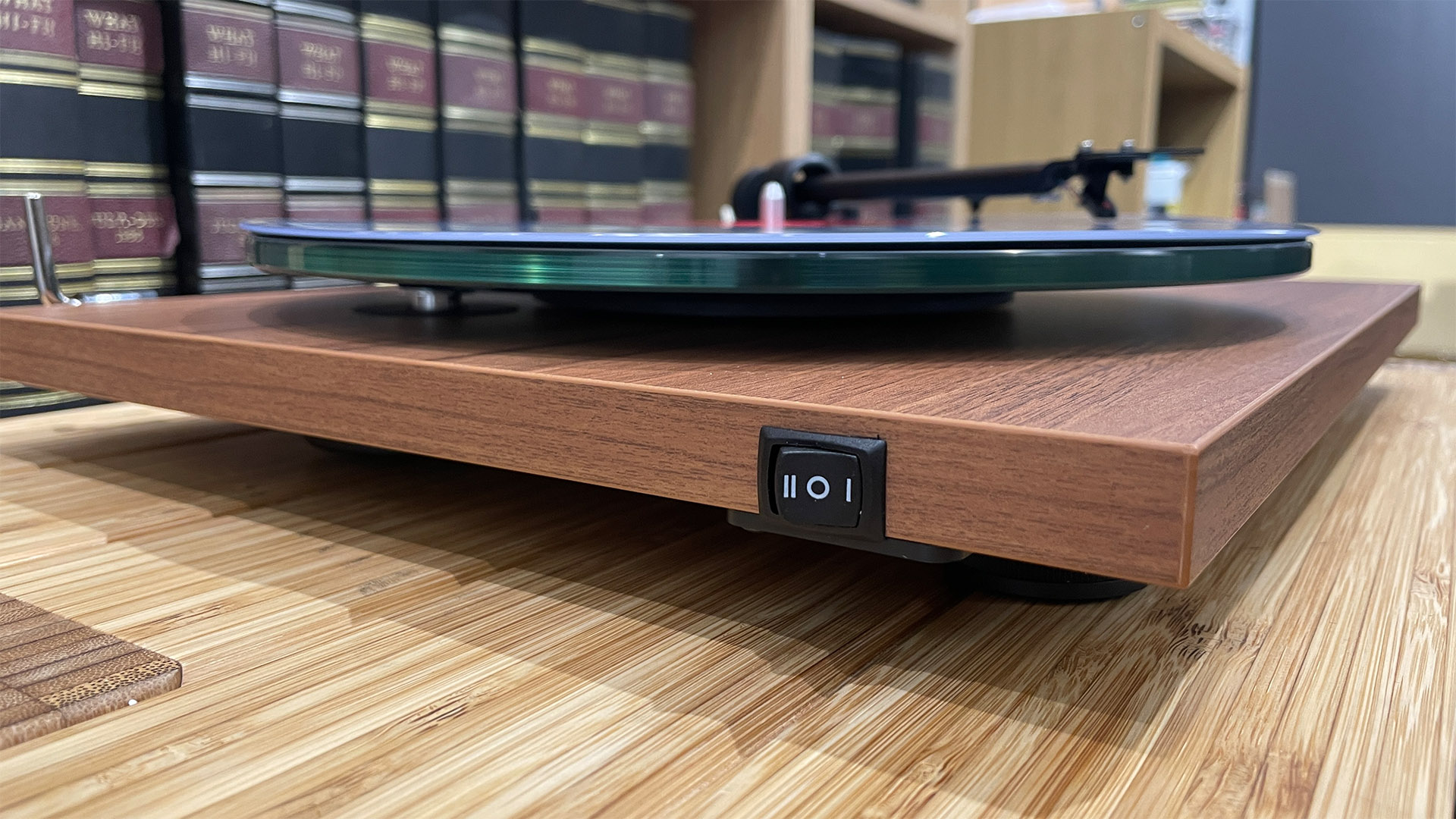
Instruments and rhythmic patterns are tracked with far more precision, too – the various entrances and exits of the ensemble powering Nas’ The World Is Yours are spotlighted with greater drama, making for an involved, engaging performance that now demands our attention with a shake of our metaphorical lapels.
However you choose to listen to the T1 Evo BT, the performance you’ll receive will reward you richly, especially if you favour an effortless, undemanding sound. We’re not expecting every user to spend a considerable sum investing in an external phono stage, but the Evo BT has the sonic capabilities to get your records purring without the need for any added expenditure.
It’s capable through Bluetooth, too – when teamed with the five-star Ruark R1S, the resultant sound is communicated with solidity, cohesion and considerable textural insight. Of course, this is reliant on the sonic capabilities of the Bluetooth speaker or wireless headphones you are connecting to as well, so we would recommend pairing the Pro-Ject with good quality Bluetooth models if you want the best from this deck’s wireless capabilities.
Verdict
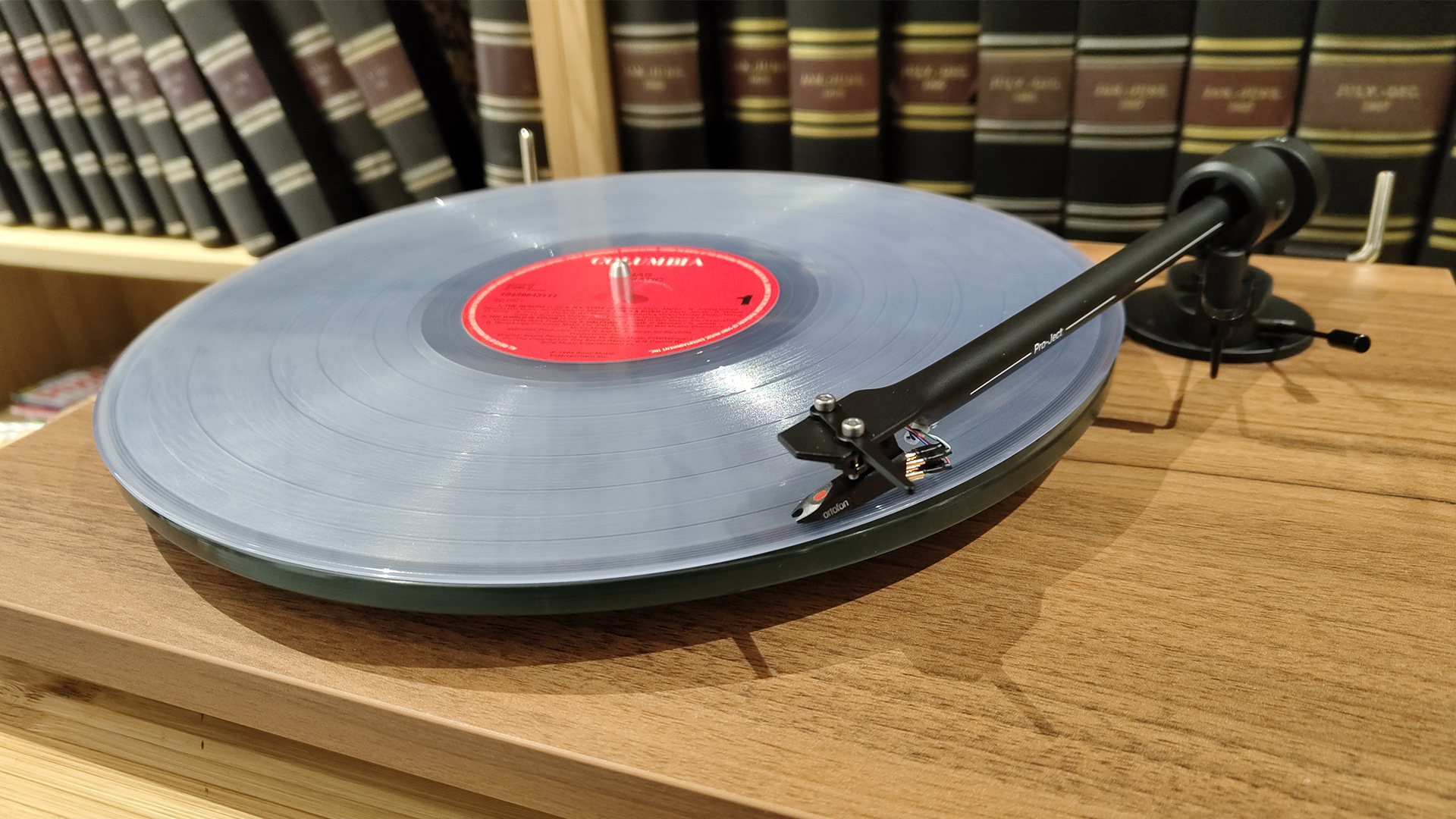
The Pro-Ject T1 Evo BT is an excellent example of what a turntable of this type and price can be. Its Bluetooth capabilities lend it an appeal to users for whom cables and complex traditional set-ups are anathema, while its smooth nature and overall flexibility will win over many fans at a relatively budget tranche within the turntable market.
Easy to use and easy to listen to, the T1 Evo BT isn’t exactly difficult to recommend.
First reviewed: April 2025
SCORES
- Sound 5
- Build 4
- Features 5
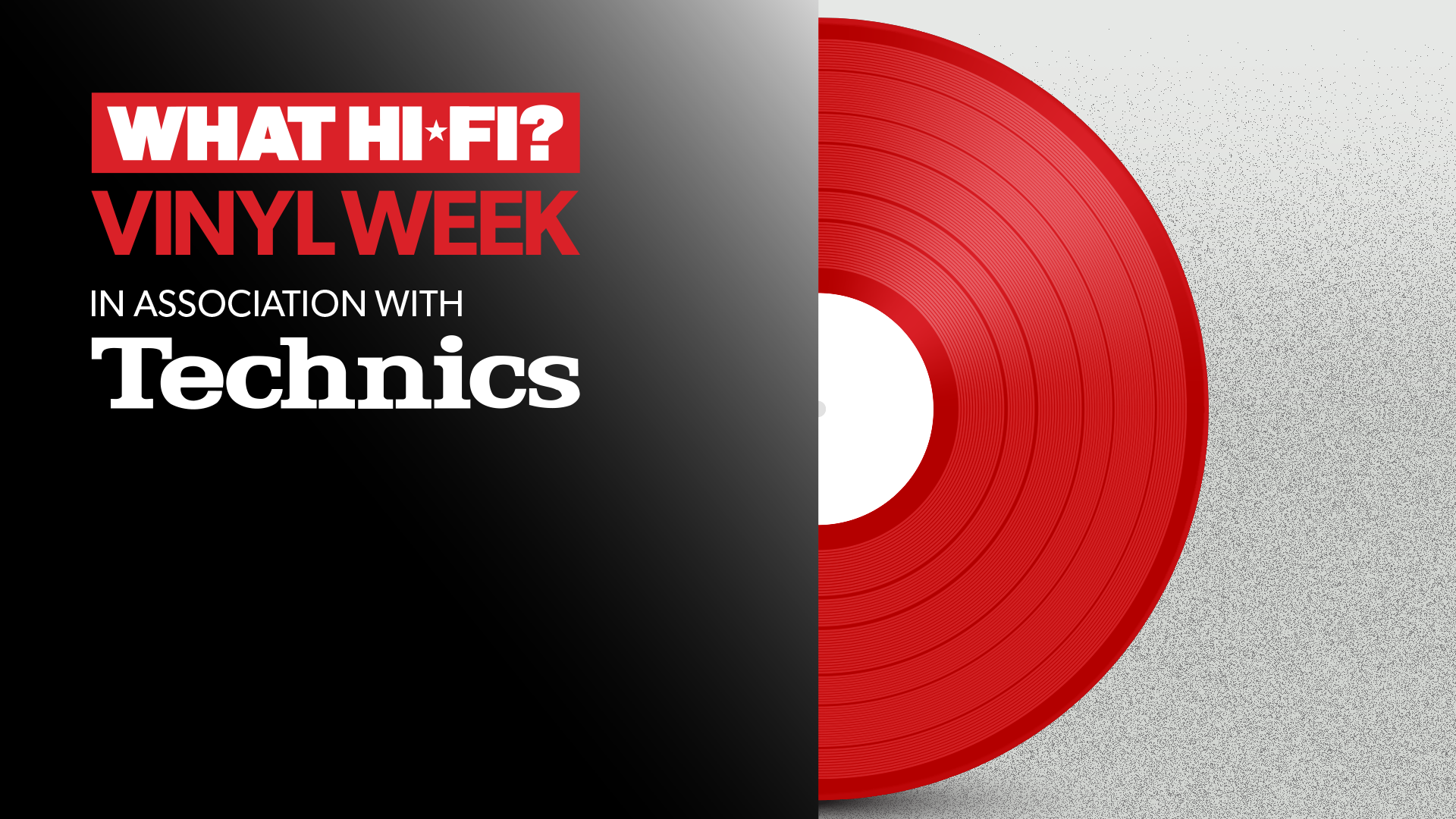
MORE:
Read our review of the Audio-Technica AT-LPW50BTRW
Also consider the Sony PS-LX310BT
Best Bluetooth turntables: wireless record players tried and tested by experts

Harry McKerrell is a senior staff writer at What Hi-Fi?. During his time at the publication, he has written countless news stories alongside features, advice and reviews of products ranging from floorstanding speakers and music streamers to over-ear headphones, wireless earbuds and portable DACs. He has covered launches from hi-fi and consumer tech brands, and major industry events including IFA, High End Munich and, of course, the Bristol Hi-Fi Show. When not at work he can be found playing hockey, practising the piano or trying to pet strangers' dogs.
- Ketan BharadiaTechnical Editor
You must confirm your public display name before commenting
Please logout and then login again, you will then be prompted to enter your display name.
